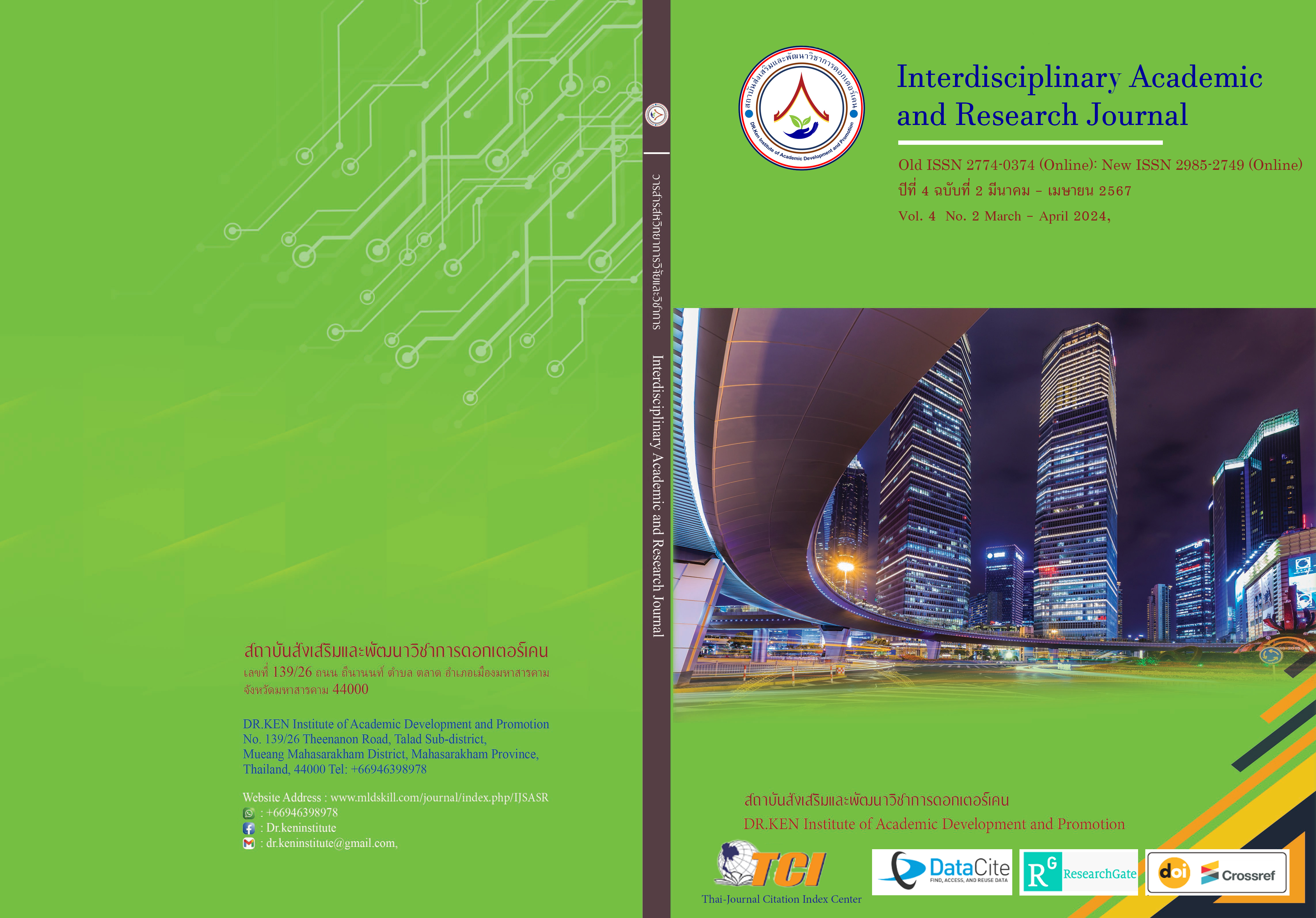Study of Employee Satisfaction After Improving the Product Storage System in the Warehouse of Kerry Express Co., Ltd., Rama 7 Branch
DOI:
https://doi.org/10.60027/iarj.2024.274912Keywords:
Product Storage FIFO Theory; , Satisfaction; , Product Storage SystemAbstract
Background and Aims: Currently, the spread of the COVID-19 virus, as a result, the e-commerce business has grown significantly. As a result, the volume of parcels that need to be delivered in the logistics system has greatly increased. When the number of products exceeds the warehouse and increases every day, the delivery of products is delayed. and not following the period It directly affects the business, causing customers to lose confidence in using the service next time. The objectives of this research were 1) to improve the storage system and increase the efficiency of picking. Dispense goods within the warehouse, 2) gain knowledge in organizing the warehouse system.
Methodology: The research is quantitative. The Population is 130 employees of Kerry Express Co., Ltd., Rama 7 branch, in the parcel warehouse and delivering parcels to customers. The researcher uses a questionnaire as a data collection tool. The statistics used to analyze the data were descriptive statistics consisting of percentage, frequency, mean, and standard deviation and inferential statistics including Independent Sample t-test, One Way ANOVA, and multiple regression analysis.
Results: The results found that; 1) Improving the storage system using the FIFO (First in First Out) theory can make the work more efficient based on questionnaire responses. The overall satisfaction in using the FIFO (First in First Out) theory was at the highest level. Considering this individually, it was found that the application of the FIFO system enabled your organization to solve the problem of delayed delivery with the highest average.2) Improving the working system using the FIFO (First in First Out) theory, allowing the work to work efficiently whether it is easier to work, work faster reduces work problems, and no residual product. As a result, the efficiency of goods issued within the warehouse is more efficient.
Conclusion: By using the FIFO (First in First Out) theory, that is, the goods that come in first will be exported first. Therefore, the problem of residual products in the warehouse is reduced. and can work faster.
References
ธัญกมล ทองก้อน และลภนภัทร ตุลยลักษณ์. (2562). การเพิ่มประสิทธิภาพการจัดการคลังสินค้า กรณีศึกษา: โรงงานผลิตและจัดจำหน่ายแท็งก์น้ำ. วิทยานิพนธ์ วิศวกรรมศาสตรบัณฑิต, สาขาวิชาโลจิสติกส์ ภาควิชาวิศวกรรมขนถ่ายวัสดุและโลจิสติกส์ คณะวิศวกรรมศาสตร์มหาวิทยาลัยเทคโนโลยีพระจอมเกล้าพระนครเหนือ.
นภัสสร สกุลประดิษฐ. (2560). การจัดการสินค้าคงคลังในโรงงานผลิตและกระจายสินค้าแช่แข็ง. มหาวิทยาลัยธรรมศาสตร์.
ปรัชภรณ์ เศรษฐเสถียร และกฤติยา เกิดผล. (2562). การเพิ่มประสิทธิภาพในการจัดการคลังสินค้า. วารสารวิจัยรำไพพรรณี, 13(2), 65-72.
สุรศักดิ์ พรบรรเจิดกุล. (2564). บริหารคลังสินค้าให้มีประสิทธิภาพและทำกำไรทันที. กรุงเทพฯ: กู๊ดเฮด พริ้นติ้ง แอนด์ แพคเกจจิ้ง
อมรศิริ ดิสสร. (2550). การบริหารสินค้าคงคลัง. กรุงเทพฯ : โอเดียสโตร์,
อรณิชา บุตรพรหม และมาริสา ป้อมบุบผา. (2561). FIFO เพื่อเพิ่มประสิทธิภาพคลังสินค้า กรณีศึกษาบริษัทชิ้นส่วนยานยนต์แห่งหนึ่ง. วารสารการบริหารและจัดการ, 8(1), 137-156.
Downloads
Published
How to Cite
Issue
Section
License
Copyright (c) 2024 Interdisciplinary Academic and Research Journal

This work is licensed under a Creative Commons Attribution-NonCommercial-NoDerivatives 4.0 International License.
Copyright on any article in the Interdisciplinary Academic and Research Journal is retained by the author(s) under the under the Creative Commons Attribution-NonCommercial-NoDerivatives 4.0 International License. Permission to use text, content, images, etc. of publication. Any user to read, download, copy, distribute, print, search, or link to the full texts of articles, crawl them for indexing, pass them as data to software, or use them for any other lawful purpose. But do not use it for commercial use or with the intent to benefit any business.
















.png)


